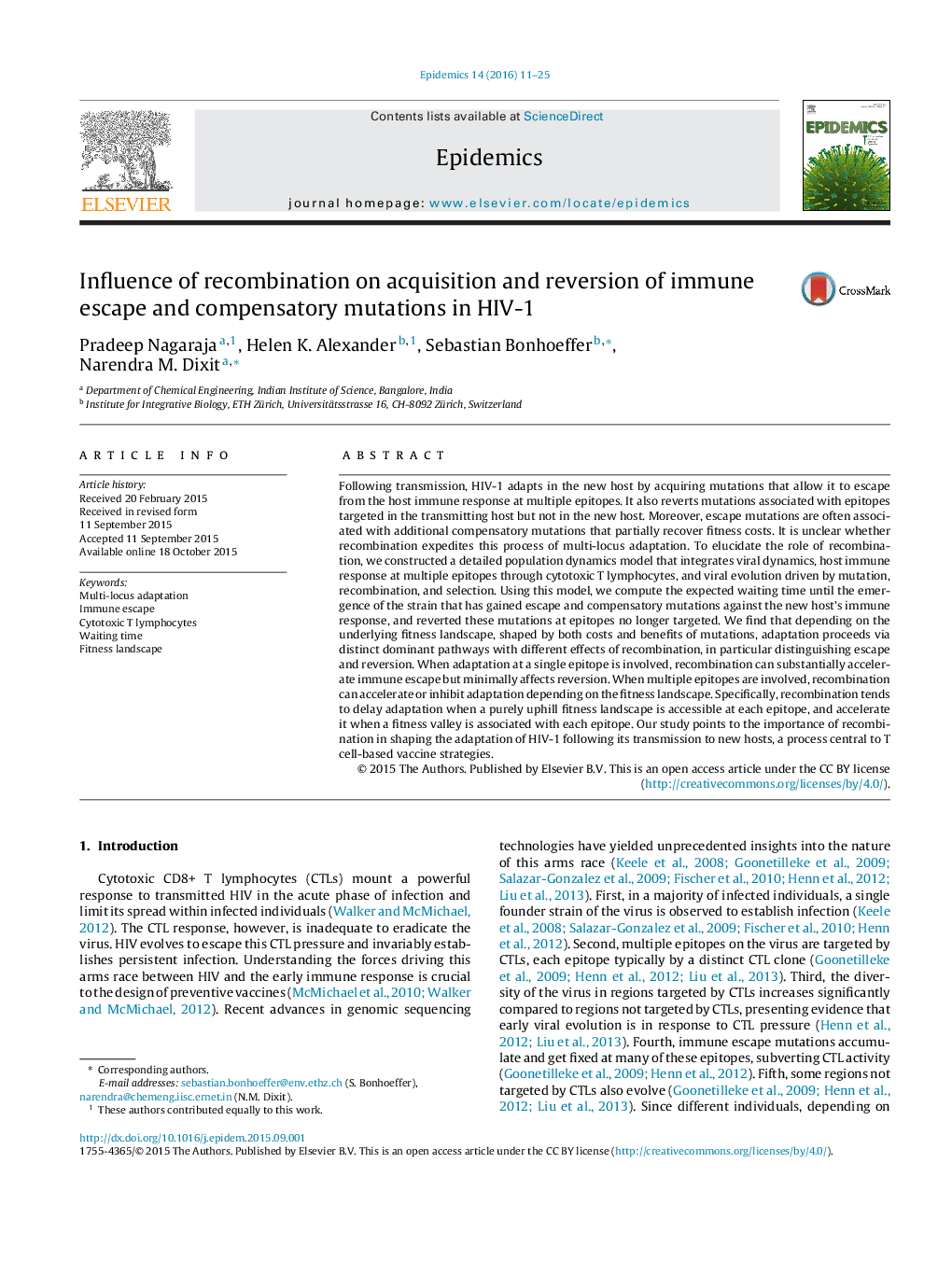| کد مقاله | کد نشریه | سال انتشار | مقاله انگلیسی | نسخه تمام متن |
|---|---|---|---|---|
| 2813484 | 1569433 | 2016 | 15 صفحه PDF | دانلود رایگان |

• We model the role of recombination in HIV adaptation following transmission.
• We construct a population dynamics model comprising viral dynamics and CTL response.
• We compute the mean waiting time until the emergence of the highly adapted strain.
• Depending on the fitness landscape, adaptation takes distinct pathways.
• Recombination accelerates or inhibits adaptation depending on the pathway.
Following transmission, HIV-1 adapts in the new host by acquiring mutations that allow it to escape from the host immune response at multiple epitopes. It also reverts mutations associated with epitopes targeted in the transmitting host but not in the new host. Moreover, escape mutations are often associated with additional compensatory mutations that partially recover fitness costs. It is unclear whether recombination expedites this process of multi-locus adaptation. To elucidate the role of recombination, we constructed a detailed population dynamics model that integrates viral dynamics, host immune response at multiple epitopes through cytotoxic T lymphocytes, and viral evolution driven by mutation, recombination, and selection. Using this model, we compute the expected waiting time until the emergence of the strain that has gained escape and compensatory mutations against the new host's immune response, and reverted these mutations at epitopes no longer targeted. We find that depending on the underlying fitness landscape, shaped by both costs and benefits of mutations, adaptation proceeds via distinct dominant pathways with different effects of recombination, in particular distinguishing escape and reversion. When adaptation at a single epitope is involved, recombination can substantially accelerate immune escape but minimally affects reversion. When multiple epitopes are involved, recombination can accelerate or inhibit adaptation depending on the fitness landscape. Specifically, recombination tends to delay adaptation when a purely uphill fitness landscape is accessible at each epitope, and accelerate it when a fitness valley is associated with each epitope. Our study points to the importance of recombination in shaping the adaptation of HIV-1 following its transmission to new hosts, a process central to T cell-based vaccine strategies.
Journal: Epidemics - Volume 14, March 2016, Pages 11–25